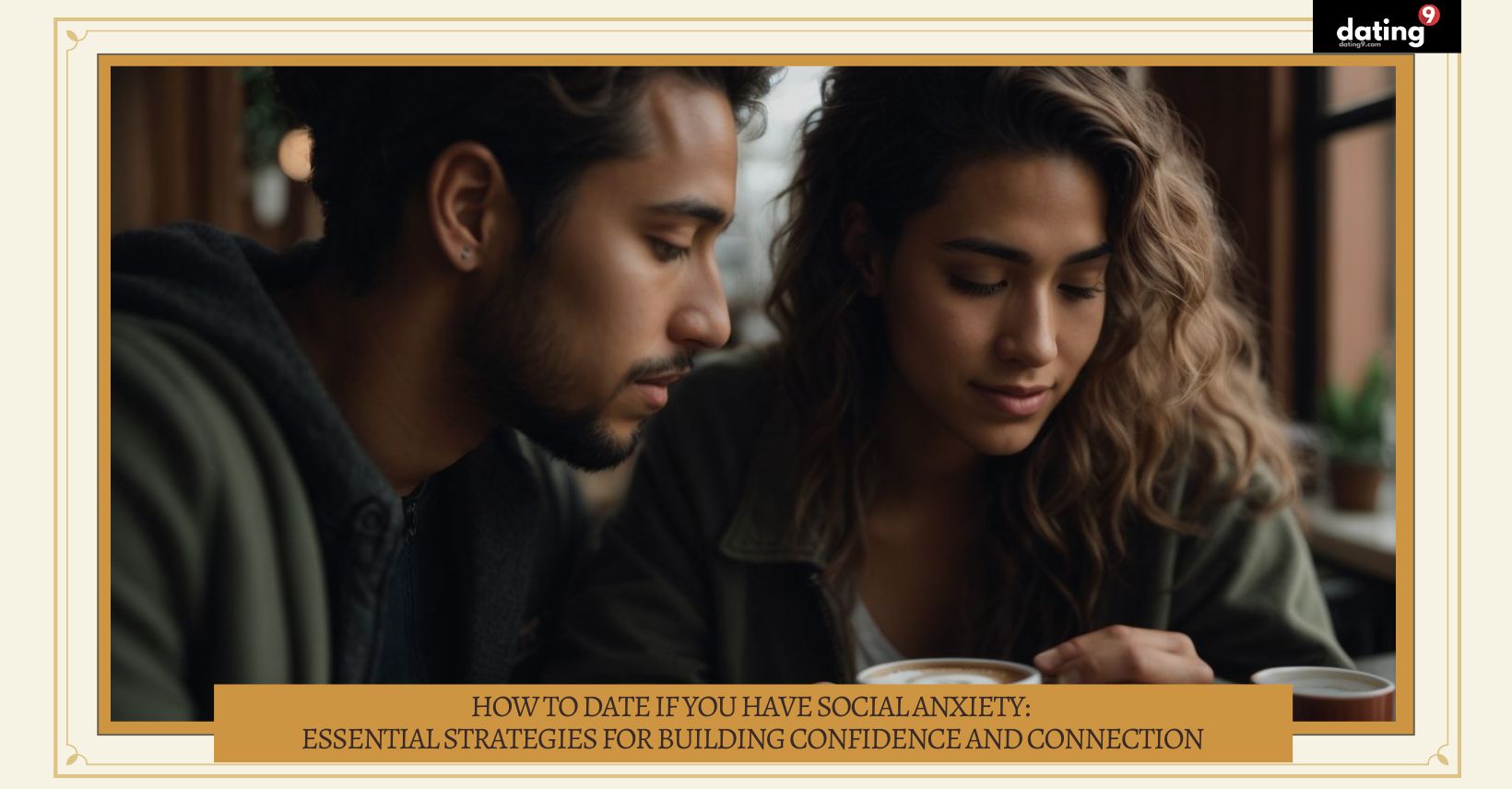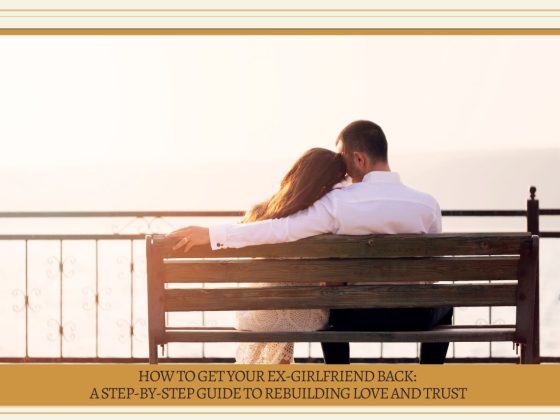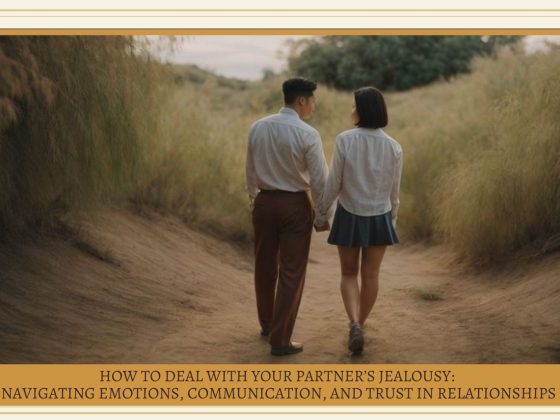Are you struggling to find love because of your social anxiety? You’re not alone. Many people with social anxiety find it difficult to date and form romantic connections. In this guide, we’ll discuss tips and strategies for overcoming your fears and navigating the world of dating with confidence and ease.
What Is Social Anxiety?
Social anxiety is a mental health condition characterised by intense fear of social situations. Individuals with social anxiety may feel excessively self-conscious, worry about being judged, and avoid social interactions. Common symptoms include racing heart, trembling, and sweating. It can significantly impact daily life, relationships, and work. Understanding social anxiety is important in providing support and empathy to those who experience it.
Pro-tip: Encourage those with social anxiety to seek professional support and exercise patience in social contexts. This understanding is vital, particularly as social anxiety significantly influences dating experiences, leading us to explore how it affects these personal interactions.
How Does Social Anxiety Affect Dating?
Social anxiety can cause excessive fear of judgment or embarrassment, leading to avoidance of dating situations. Difficulty initiating conversations or maintaining eye contact can hinder the development of romantic relationships. Fear of physical symptoms like blushing or sweating can make dating situations distressing. Overthinking and constant worry about potential negative outcomes can lead to avoidance of social gatherings and dating opportunities.
I once knew someone with social anxiety who found it challenging to date. Despite their fears, they slowly built confidence through therapy and attended social events. Eventually, they met a partner who understood and supported their journey, leading to a fulfilling relationship.
What Are The Challenges of Dating With Social Anxiety?
Challenges of dating with social anxiety revolve around managing overwhelming fear and self-consciousness in social situations. These challenges may include difficulty initiating conversations, feeling constantly judged, and struggling to make eye contact. Also, the pressure of maintaining a positive image and the fear of rejection leads to avoidance of potential romantic opportunities. Coping with overthinking and catastrophising thoughts can hinder the natural flow of interaction. Moreover, navigating physical contact and intimacy may be daunting. All these factors can significantly impact the dating experience for individuals with social anxiety, requiring patience, understanding, and customised strategies from both partners to foster a supportive and comfortable environment.
How Does Social Anxiety Affect Communication?
Social anxiety often disrupts verbal communication by instilling a fear of judgment, which leads to difficulties in speaking and reluctance to participate in conversations. This anxiety can also impact non-verbal cues, such as making eye contact or controlling nervous gestures, further complicating social interactions. The result is an overthinking mindset that impedes spontaneous conversation, making it tough for individuals to start or keep a dialogue flowing. This struggle is especially pronounced when the stakes, such as dating, feel higher. Addressing these challenges is important for those looking to manage their social anxiety in romantic settings, leading us to explore effective strategies on how to overcome social anxiety while dating.
How To Overcome Social Anxiety While Dating?
Dating can be daunting for anyone, but for those with social anxiety, it can feel like an insurmountable challenge. However, with the right tools and strategies, navigating the dating world while managing social anxiety is possible. In this section, we will discuss overcoming social anxiety while dating. From seeking therapy or counselling to practising mindfulness and relaxation techniques to challenging negative thoughts and beliefs and communicating openly and honestly with your partner, we will explore effective ways to cope with social anxiety in the dating realm.
1. Seek Therapy or Counselling
Seek therapy or counselling to address social anxiety in dating. A mental health professional can provide personalised strategies and support to your concerns.
Engage in cognitive-behavioural therapy (CBT) to challenge and reframe negative thoughts and beliefs about dating and social interactions.
Consider exposure therapy under the guidance of a qualified therapist to gradually face and overcome social anxiety triggers in dating scenarios.
Explore acceptance and commitment therapy (ACT) to develop mindfulness and emotional resilience, enhancing your ability to navigate dating with social anxiety.
2. Practice Mindfulness and Relaxation Techniques
Practice deep breathing exercises to calm the mind and body.
Engage in meditation to enhance self-awareness and reduce anxiety.
Utilise progressive muscle relaxation techniques to release tension and promote relaxation.
Try visualization exercises to envision peaceful and positive scenarios, easing social anxiety.
Incorporate yoga or tai chi for physical and mental relaxation.
3. Challenge Negative Thoughts and Beliefs
Identify negative thoughts: Recognise and acknowledge negative thoughts in social situations.
Evaluate negative thoughts: Assess the validity of these thoughts and challenge their accuracy.
Replace negative thoughts: Replace irrational or exaggerated negative thoughts with more balanced and realistic ones.
Practice positive affirmations: Engage in positive self-talk and affirmations to counteract negative beliefs and foster self-confidence.
Seek professional guidance: Consider seeking therapy or counselling to develop effective strategies for reframing negative thoughts and beliefs.
4. Communicate Openly and Honestly with Your Partner
Express your feelings openly and honestly with your partner, sharing your fears and concerns about social situations. Discuss your social anxiety triggers and symptoms with your partner, helping them understand your experiences better. Establish clear and open communication channels, allowing both partners to express their needs and concerns. Work together to create a supportive environment that encourages open and honest communication, fostering trust and understanding.
Effective communication is vital in dating for those navigating social anxiety. You enhance mutual understanding and strengthen your bond by expressing your feelings, thoughts, and struggles. This openness paves the way for a richer connection, which is required for managing social anxiety together. To further aid in this endeavour, let’s explore practical tips for dating with social anxiety.
What Are Some Tips for Dating with Social Anxiety?
Dating can be a nerve-wracking experience for anyone, but it can be especially challenging for those with social anxiety. However, with the right approach and mindset, dating with social anxiety can be a rewarding and fulfilling experience. This section will discuss some helpful tips for navigating dating while managing your social anxiety. From choosing the right setting for dates to setting boundaries and building emotional connections, these tips will help you feel more confident and comfortable while dating.
1. Choose Low-Pressure and Comfortable Settings for Dates
When dealing with social anxiety, selecting low-pressure and comfortable settings for dates can greatly alleviate stress and enhance the overall dating experience. Here are some steps to achieve this:
- For your dates, opt for casual settings like a cosy coffee shop, a scenic park, or a quiet museum.
- Consider daytime outings or activities you enjoy and feel comfortable with, such as visiting a bookstore or taking a painting class.
- Choose venues that allow easy conversation and minimal distractions, enabling a relaxed and enjoyable interaction.
By prioritising comfortable environments, individuals with social anxiety can foster a more positive dating atmosphere and gradually build confidence in social interactions.
2. Be Honest About Your Social Anxiety with Your Partner
Open Communication: Discuss your social anxiety openly with your partner, explaining its impact and your coping strategies. This fosters understanding and support.
Share Triggers: Communicate exact situations or environments that trigger your social anxiety. This helps your partner recognize and assist in managing these triggers.
Collaborate on Solutions: Develop strategies for navigating social events or outings together. This involvement strengthens your bond and provides practical support.
Encourage Feedback: Invite your partner to share their feelings and concerns about your social anxiety. This promotes a healthy dialogue and mutual understanding.
Express Gratitude: Acknowledge your partner’s support and understanding regarding your social anxiety. Gratitude reinforces their positive involvement and encourages continued support.
3. Set Boundaries and Take Breaks When Needed
Set clear boundaries: Establish boundaries in your relationship to ensure your needs and limits are respected. Communicate openly with your partner about your comfort levels and areas where you need space.
Take breaks when necessary: Recognize when you need a break from social situations or dating activities. It’s okay to take time for yourself to recharge and manage your anxiety. Use this time to practice self-care and engage in activities that bring you peace.
4. Focus on Building a Strong Emotional Connection
Establish trust and openness by sharing personal experiences and emotions, focusing on vulnerability and empathy.
Engage in active listening to understand and validate each other’s feelings and perspectives, strengthening emotional bonds.
Express appreciation and affection through gestures, words, and actions, nurturing a deeper emotional connection.
Participate in enriching activities like hobbies or community service, which foster shared experiences and enhance emotional closeness. Engaging in these shared experiences not only deepens intimacy but also helps in observing your partner’s behaviour in social settings—a critical step before identifying potential red flags if you suffer from social anxiety.
What Are Some Red Flags to Watch Out for in a Partner if You Have Social Anxiety?
Dating can be challenging for anyone, but it can be especially daunting if you struggle with social anxiety. It’s important to be aware of potential red flags in a partner that may exacerbate your anxiety. This section will discuss three key warning signs to watch out for when dating someone new. These include a lack of understanding or empathy for your social anxiety, constantly pushing you out of your comfort zone, and dismissing your feelings or needs. Being aware of these red flags can ensure a healthier and more supportive relationship.
1. Lack of Understanding or Empathy for Your Social Anxiety
Open Communication: Discuss your social anxiety with your partner, explaining how it affects you and what support you need.
Empathy: Seek a partner who shows empathy and understanding to your social anxiety, acknowledging its impact on you.
Patience: Look for a partner who is patient and willing to take things at a pace that is comfortable for you. When I opened up to my partner about my social anxiety, I was met with genuine understanding and support. Their patience and empathy have made a significant difference in navigating social situations together.
2. Constantly Pushing You Out of Your Comfort Zone
Recognise the signs: If your partner frequently insists on social activities that make you uncomfortable or disregards your boundaries, it may indicate a lack of consideration for your social anxiety.
Communicate openly: Express your feelings and concerns to your partner. Clearly outline your comfort levels and the need for gradual exposure to social situations.
Set firm boundaries: Establish clear limits regarding social events. Discuss compromises that respect your emotional well-being while allowing for mutual understanding.
Seek support: If your partner consistently disregards your comfort zone, consider seeking advice from a therapist or counsellor to address this issue.
3. Dismissing Your Feelings or Needs
Recognise the signs: Be aware of behaviours such as invalidating your emotions, disregarding your concerns, or downplaying your needs.
Set boundaries: Communicate your boundaries and what you need from your partner. It’s essential to feel respected and understood in a relationship.
Seek support: Discuss your feelings with a trusted friend, family member, or therapist. Having a support system can provide validation and guidance in addressing dismissive behaviour.
Evaluate the relationship: Reflect on whether the dismissive attitude is a recurring pattern. Consider the long-term impact on your well-being and overall happiness.
Express your feelings: Communicate openly with your partner about how their dismissive behaviour affects you. Honest and empathetic conversations can foster mutual understanding and growth. Addressing dismissive behaviour in relationships is important to ensuring emotional well-being and cultivating a healthy, supportive connection.
When Should You Seek Professional Help for Social Anxiety in Dating?
Seek professional help for social anxiety in dating when it significantly interferes with your daily life, causing distress and impacting your relationships. If you experience intense fear, avoidance, or physical symptoms like panic attacks, it’s important to consult a mental health professional.
Additionally, when social anxiety affects your ability to engage in dating or maintain romantic relationships, seeking therapy can be beneficial. Therapists can provide cognitive-behavioural techniques, exposure therapy, and social skills training to address social anxiety in the context of dating.
Remember, professional help is essential when social anxiety becomes overwhelming and hinders your pursuit of fulfilling relationships. Click here for more information.
Conclusion: Fostering Relationships Despite Anxiety Challenges
Navigating the dating world with social anxiety presents unique challenges, but with the right strategies and mindset, you can cultivate fulfilling romantic relationships. By recognizing red flags, setting boundaries, and engaging in open communication, you can create a supportive and understanding environment for yourself and your partner. Remember, it’s okay to seek professional help if your anxiety becomes overwhelming. With patience, empathy, and persistence, you can overcome the barriers of social anxiety and build strong, lasting connections. Embrace your journey with courage and optimism, knowing that each step forward is toward a deeper, more meaningful relationship.



